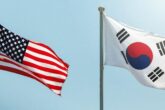September 26, 2018
Pyongyang Declaration: Bringing peace to the Koreas beyond symbolism
Symbolism and atmospherics are often just as important as literal deliverables in Korean culture. This symbolic approach is not necessarily understandable to Western minds accustomed to direct, business-like methods. The recent inter-Korean summit in Pyongyang was an example of the importance of the symbolism, atmospherics, and lavish hospitality in the Korean relationship building that often precedes tangible efforts to solve problems. It was clear the two leaders wanted to convey an overarching message of “one Korean race,” and the summit was another opportunity for North Korean leader Kim Jong-un to further build his persona as a normal leader of a normal country. The real-time visuals portrayed the natural affinity all Koreans feel for one another and focused on visions of peace between the two Koreas, while leaving the question of what unification would actually look like open ended.
Symbolism showed many different faces throughout the three days of the summit and in the September Pyongyang Joint Declaration—both of which highlighted aspirational goals, each side’s intentions and shared objectives, as well as contradictions and perhaps even hidden agendas. South Korean President Moon Jae-in and Kim indisputably advanced their April Panmunjom Declaration with more concrete pledges. The pledges were also embedded with symbols of their three main agenda items: reducing military tensions in regard to conventional weapons, improving relations, and addressing, eventually, denuclearization. The two Koreas should certainly make concerted efforts to achieve sustainable peace and deal with conventional military capabilities along the border. But the South Korean public and the international community that have seen this movie countless times before wonder when the gap will finally be closed between symbolism and reality.
Read the full article in the Bulletin of the Atomic Scientists.
More from CNAS
-
Trump-Lee Summit
Duyeon Kim, adjunct senior fellow at the Center for a New American Security joins CNN to discuss the Trump-Lee Summit and the concerns should U.S. troops pivot to focus on Chi...
By Dr. Duyeon Kim
-
Upcoming Trump-Lee Summit: Modernizing the Alliance by First Reaffirming Long-Standing Principles
Trump and Lee could reaffirm their country’s commitment to the alliance amid shifting security dynamics and agree to modernize it in broad terms to meet the needs of today and...
By Dr. Duyeon Kim
-
South Korea-U.S. Launch Ulchi Drills as Kim Slams Exercise as “Hostile”
With North Korea's growing alignment with Moscow, plus renewed great-power diplomacy following President Trump's latest call with President Putin, the Korean Peninsula is once...
By Dr. Go Myong-Hyun
-
Indo-Pacific Security / Energy, Economics & Security
75 Years Post-Korean War: Can Trust Be Rebuilt Under the New Administration?As President Lee Jae Myung begins his term, he's taking visible steps to reset the tone with North Korea: halting propaganda broadcasts and reemphasizing past military agreeme...
By Dr. Go Myong-Hyun



